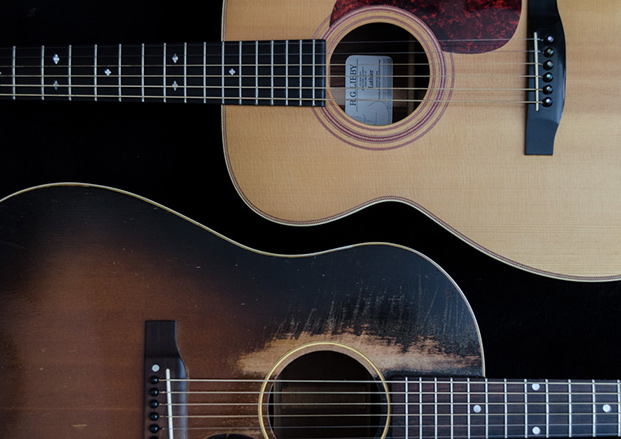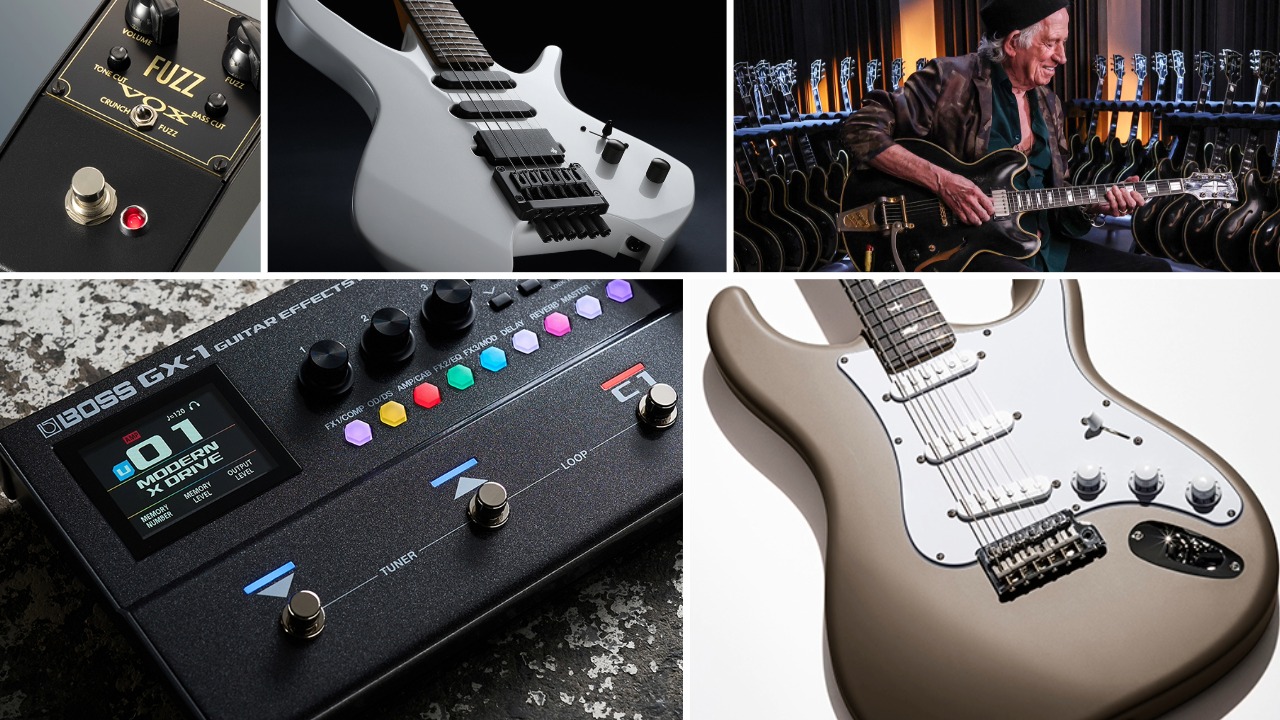To Buy New, or Buy Used?

Simple question: Should you buy new or used?
Simple answer: It’s complicated.
When you’re on the hunt for gear, it’s easy to think the smart buy is the one with the lowest asking price. But instead of just thinking about what is easiest on your wallet up front, think about the entire cost of buying, owning, and perhaps even reselling that item later on down the road.
No one wants to get burned on a bad deal, so here are some obvious and not-so-obvious things to think about to help fireproof your next purchase.
Asking price.
This is the question with the easiest answer. Which has the lower asking price?
Is it a fair price?
All the latest guitar news, interviews, lessons, reviews, deals and more, direct to your inbox!
Pawn shops and eBay ads sometimes ask more than retail price for used items. Don’t assume a used price is automatically lower than a new one.
Can you get it on sale?
A new item on a blowout sale can be cheaper than a used item. If so, you might negotiate an even lower used price.
Effort.
Driving across the state to meet some guy for a used Squire in a parking lot at midnight may more time-consuming, costly, or dangerous than it’s worth.
Local support.
Mom-and-pop stores can be a great place to find gear, so can friends. Sometimes it’s worth it to buy from them (new or used) just to make sure they stick around.
Gotta have it now.
If you need an item for that night’s gig, it might not matter new or used, a good buy or not, it’s wherever you find it first.
Barely used.
New gear typically drops in value the moment it leaves the store. Buying barely used can be a savings opportunity. Even the latest gear can start appearing on the used market within weeks.
Older versions.
If you don’t need the latest model, buying an earlier version can save you cash.
Vintage.
For some gear, old and cheap turns into old and expensive. Ask yourself if you really require vintage or would a new or used replica do the job for less money.
Technology life cycles.
Will that amp emulation software still run when you install the next operating system on your laptop? If the answer is “no,” maybe you should buy something more recent with a longer functional life.
Availability and magical qualities.
A model may not be otherwise available, have changed in quality, or may be simply a “magical” example. Lots of variables can alter the perceived “value vs. cost” equation in deciding new or used.
What’s included?
A new guitar could include new strings, tune-ups, and support, while a used guitar might come with a case, strap, and even a practice amp. Consider the value of the entire package.
Repairs needed or covered?
If you’re contemplating buying used, make sure you know about any problems or modifications and allow for the cost of fixing it. This can be a bargaining chip to lower the price on used gear, especially if you can do the work yourself. If it can’t be repaired, the price should reflect how much life is left in that bit of kit.
Availability of parts?
If you buy used, can you get the replacement parts you need?
Safety first.
Amp repairmen refer to the unshielded circuit in my ancient, open-back amp as a “kitty killer.” Factor in any work to bring your purchase up to current safety standards.
Cosmetic wear.
Unless you need to be the one who gets to remove the plastic wrap from that brand new pick guard, purely cosmetic wear can save you money. Use the extra cash to buy Saran Wrap to stick on the pick guard yourself.
Payment plans.
Can you delay payment or stretch it out in installments? This can make gear more affordable than a lower price that you have to pay up front.
Barter-ability.
You might not have cash for that 12-string, but you might be able to trade your spare amp for it.
Warranties.
New or used, what kind of warranty is included if any? If the warranty is transferrable and still valid, it’s worth a lot and can go a long way toward easing any fears of buying used.
Ease of return.
If things don’t work out, how easy is it to return the item? Long ago, I once spent four months trying to get my money back on an original 1956 Telecaster I bought off the internet. It had a dead pickup, a hole in the peghead for an extra tuner, and a hole through the body from what I can only assume was the bullet fired by whoever shot the guy who drilled that hole in the peghead.
Resale value.
Most times, used items retain their value better than new ones. This is can be especially true of vintage pieces, which can even rise in value. However, the opposite can happen with used gear that’s been modified. Think about its resale value if you might want to flip it eventually.
Too good to be true.
- Use extreme caution when you see something that seems way too inexpensive, especially if you don’t know the source. There are literally tons of fake, stolen, misrepresented, or simply non-existent gear advertised on the web.
- The final word.
Whether you buy new or used, do your research before you purchase. And when it comes time to sell, do the right thing: provide an accurate description, a fair price, and try and make it a good buy for the next guy.
